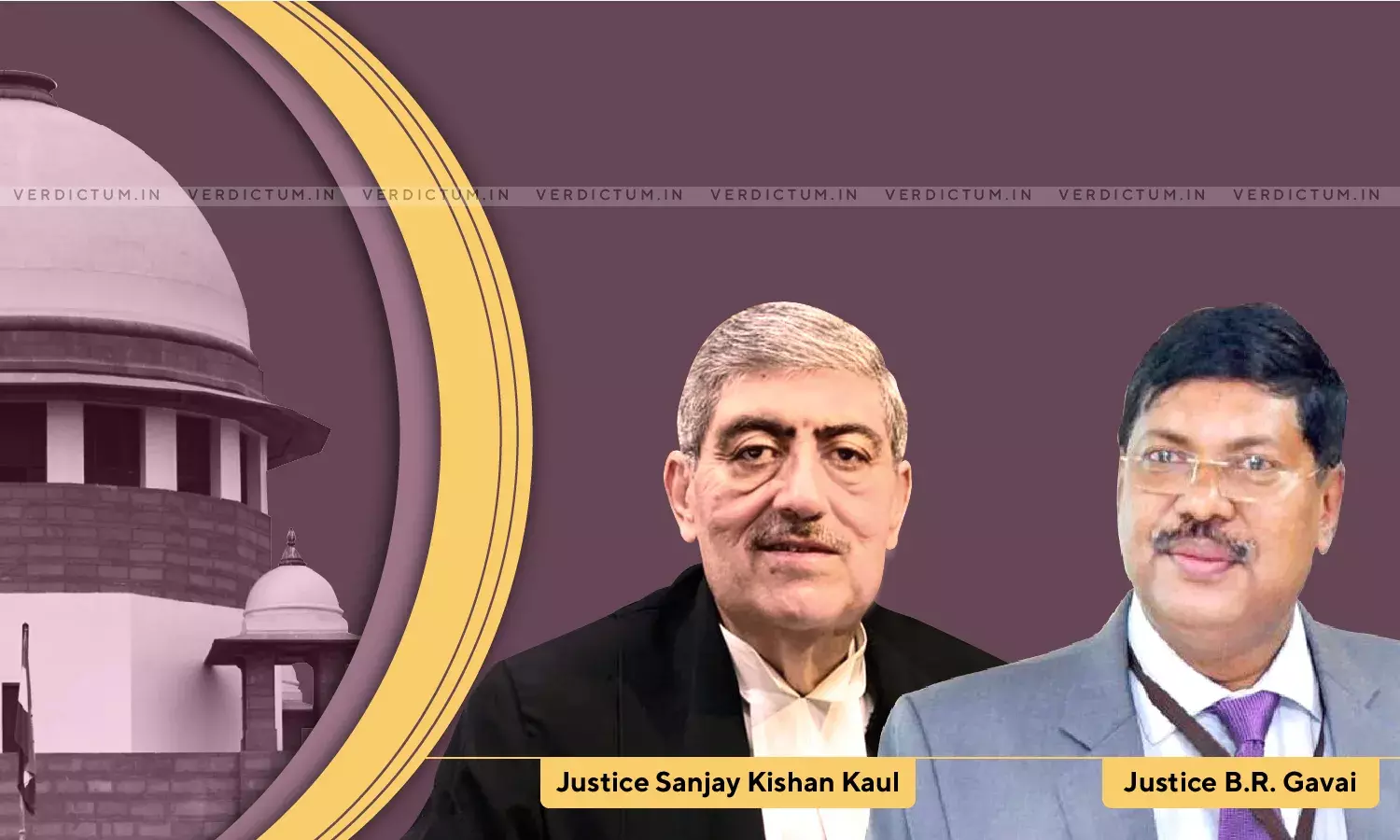Order XXI Rule 16- There Is No Distinction Between An Assignment Pre Decree And Assignment Post Decree: Supreme Court

A two-judge Supreme Court Bench has held that there is no distinction between an assignment pre the decree and an assignment post the decree after the addition of an explanation to Order XXI Rule 16 of the Civil Procedure Code (CPC) by an amendment of 1976.
"We are of the view that the objective of amending Order XXI Rule 16 of the CPC by adding the Explanation was to deal with the scenario as exists in the present case, to avoid separate suit proceedings being filed there from and to that extent removing the distinction between an assignment pre the decree and an assignment post the decree," the Bench of Justice SK Kaul and Justice BR Gavai observed.
In this case, a decree-holder had died while execution proceedings were ongoing. His assignees claimed the right based upon a written assignment deed by filing objections in the form of an application under Section 47 read with Order 22 Rules 1&2 of the CPC read with Sections 2(1)(g) and 36 of the Arbitration and Conciliation Act, before the executing Court. The Execution Court and High Court had dismissed their objections.
Their revision petition was dismissed by the High Court of Calcutta citing a judgment of the Supreme Court in the matter of Jugalkishore Saraf v. M/s. Raw Cotton Co. Ltd. The specific reliance was placed on para 26 by the High Court that, "Order XXI Rule 16 contemplates the actual transfer of the decree by an assignment in writing executed "after the decree is passed". Thus, while a transfer of or an agreement to transfer a decree that may be passed in the future may, in equity, entitle the intending transferee to claim the beneficial interest in the decree after it is passed, such equitable transfer does not relate back to the prior agreement and does not render the transferee a transferee of the decree by an assignment in writing within the meaning of Order XXI Rule 16 of the CPC."
Counsel for the appellant submitted that after the amendment to Order XXI Rule 16 came into force by insertion of an explanation, the judgment is not relevant in the case.
On the other side, the respondent disputed the Assignment Deed and that the same was submitted at a very belated stage.
After hearing the parties, the Bench noted that the said judgment would have covered the case if the amendment had not been made in 1976. The object of bringing the amendment was to avoid multiple litigations.
The Bench observed,"The Law Commission recommended amending Order XXI Rule 16 to clarify that it does not affect the provisions of Section 146 and that a transferee of rights in the subject matter of the suit can obtain execution of a decree without separate assignment of the decree. The objective appears to be to not have multifarious proceedings to determine the issue of assignment, but to determine the issue of assignment in the execution proceedings itself."
It further asserted, "What has been discussed even in the judgment in Jugalkishore Saraf as a view based on the equitable principle was sought to be incorporated in Order XXI Rule 16 of the CPC by adding the Explanation, something which had not been done. Once the legislative intent is clear, and the law is amended, then the earlier position of law cannot be said to prevail post the amendment and it is not in doubt that the present case is one post the amendment."
While allowing the appeal, the Bench stated, "We make it clear that we are not going into the validity of the document, i.e., the Assignment Deed or the cheque as that would be a matter to be decided by the executing court. The question was as to whether at the threshold, the appellants' objection could be rejected on the ground that they were assignees who had acquired the rights prior to the passing of the decree. The rest of the job would be of the executing court, despite the considerable prolongation which has taken place."
Parties: Vaishnodevi Construction Vs Union of India

